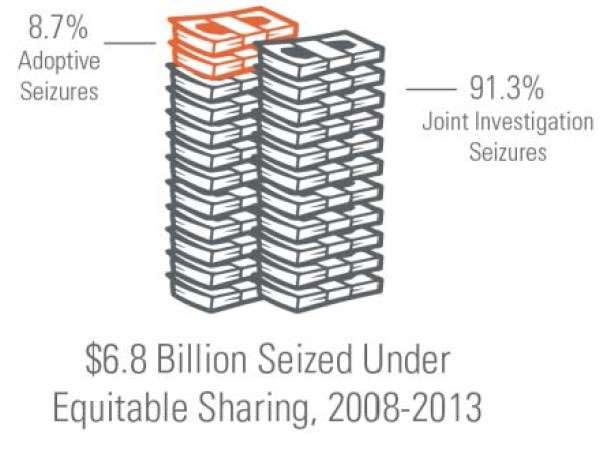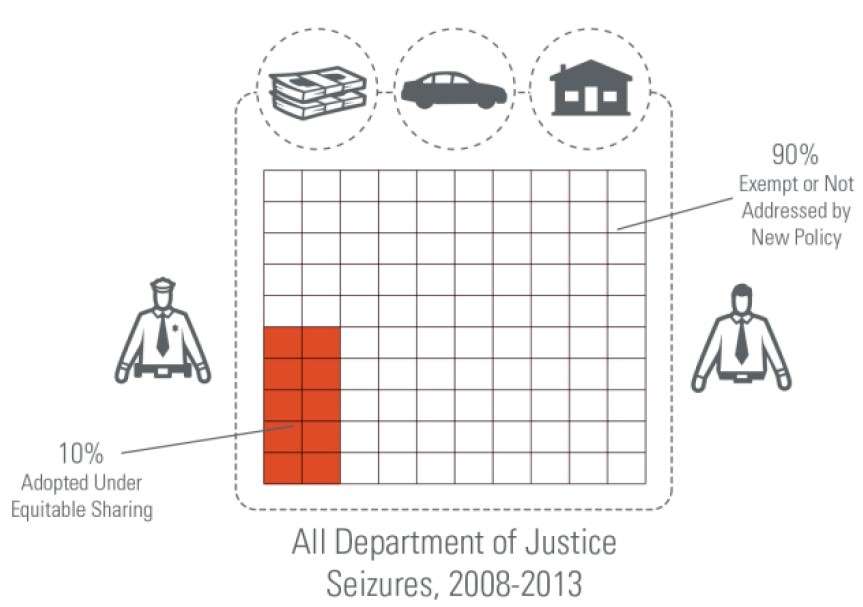I.J. Analysis Confirms Modest Impact of Holder's Forfeiture Reform
The changes may affect about a quarter of equitable sharing forfeitures and less than a tenth of proceeds.

After Attorney General Eric Holder announced changes to the Justice Department's forfeiture policies last month, I noted that the impact would be pretty modest, since his directive left the DOJ's Equitable Sharing Program mostly untouched and addressed only a small share of the assets seized under federal law. A new analysis from the Institute for Justice confirms this point, finding that Holder's reform, which is limited to cases classified as "adoptions," would have affected less than one-tenth of the forfeiture money that states received through equitable sharing from 2008 through 2013. During that period, adoptions accounted for about a quarter of the assets seized under the program, which lets police evade state limits on forfeiture.

Adoptions represented an even smaller share of all DOJ forfeitures: about 3 percent of proceeds and 10 percent of assets. I.J. found that civil forfeiture, which does not require that the owner be charged, let alone convicted, accounted for 78 percent of the confiscated assets.
"The Attorney General's policy change was a welcome first step toward addressing the vast injustices perpetuated by the federal civil forfeiture system, but it is clear from the Department of Justice's own data that much remains to be done," says Scott Bullock, an I.J. senior attorney. "The Justice Department must take further steps to curtail civil forfeiture, and Congress must pass strong reform legislation. Only then will Americans' property and due process rights be restored."
Two House subcommittees are holding hearings on forfeiture reform tomorrow. You can read the testimony that I.J. attorneys plan to give here and here.


Show Comments (19)